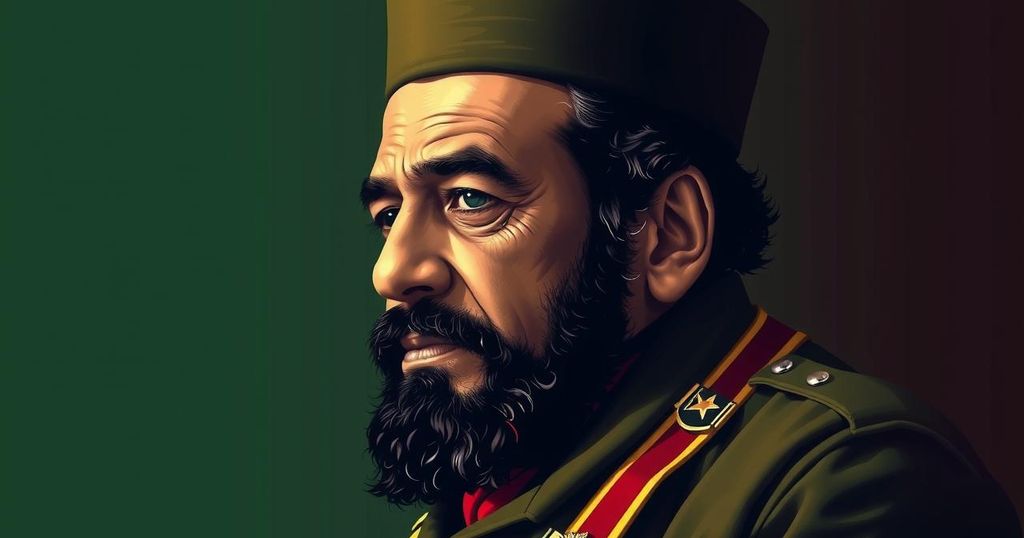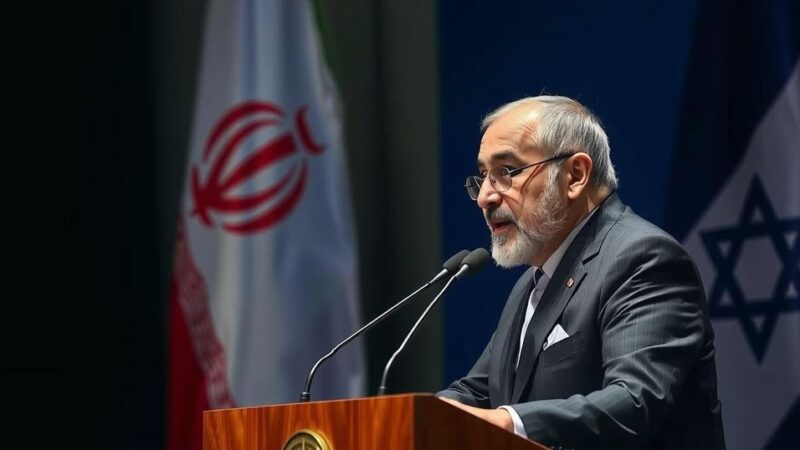Muammar al-Qaddafi was Libya’s de facto leader from 1969 until his ousting in 2011. He rose to power through a military coup, instituted radical policies, and adopted a volatile international stance that included supporting revolutionary movements and being implicated in acts of terrorism. His regime faced widespread protests during the Arab Spring, leading to his capture and death by rebel forces in October 2011.
Muammar al-Qaddafi (1942-2011) served as the de facto leader of Libya from 1969 until he was ousted during the civil uprising in 2011. Born to a nomadic Bedouin family near Sirte, Libya, Qaddafi demonstrated academic promise and graduated from the University of Libya. A passionate Arab nationalist and devout Muslim, he meticulously planned to overturn the monarchy of King Idris I. Following his military coup on September 1, 1969, Qaddafi assumed control as the commander-in-chief and led the Revolutionary Command Council. As a ruler, Qaddafi pursued radical policies, removing foreign military bases, expelling non-Arab populations, and nationalizing Libya’s oil resources. His regime was characterized by Islamic socialism, promoted through his political doctrine outlined in “The Green Book,” which encouraged a decentralized governance model called jamāhīriyyah. Qaddafi’s foreign relations were marked by volatility, including the support of various revolutionary groups worldwide and suspected involvement in international terrorism, most notably the Lockerbie bombing in 1988. These actions escalated tensions with Western powers, resulting in international sanctions that isolated Libya throughout the 1980s and 1990s. However, in the early 2000s, Qaddafi sought to rehabilitate Libya’s reputation by cooperating with international authorities regarding terrorism and weapons control. The wave of anti-government protests sweeping across the Arab world in early 2011 reached Libya, culminating in violent crackdowns by Qaddafi’s forces. Despite his efforts to retain power, escalating military confrontations, international condemnation, and UN sanctions ultimately diminished his hold. In August 2011, rebel forces seized Tripoli, leading to Qaddafi’s final capture and execution in his hometown, Sirte, on October 20, 2011. This marked the end of his 42-year rule, forever altering Libya’s political landscape and history.
Muammar al-Qaddafi’s rule in Libya represents a significant chapter in the modern history of North Africa and the Arab world. His rise as a revolutionary leader was rooted in a combination of nationalist aspirations and radical socialist ideologies. Throughout his tenure, he asserted an aggressive foreign policy that both garnered international attention and created longstanding conflict with Western nations. Qaddafi’s unique governance structure, characterized by his Green Book ideology, attempted to unify Arab nations under a populist banner while isolating Libya through controversial international actions. His ultimate removal during the Arab Spring signifies the profound shifts in governance and political accountability in the region.
Muammar al-Qaddafi’s four-decade rule left an indelible mark on Libya and the broader Arab world, marked by radical policies, international conflicts, and an eventual tragic downfall. His legacy remains one of complexity, where aspirations of Arab unity and socialism were continually offset by authoritarianism and violent repression. The circumstances surrounding his rise and fall reflect broader trends in Middle Eastern politics and the challenges faced by leaders who seek to maintain power in the face of popular dissent.
Original Source: www.britannica.com






